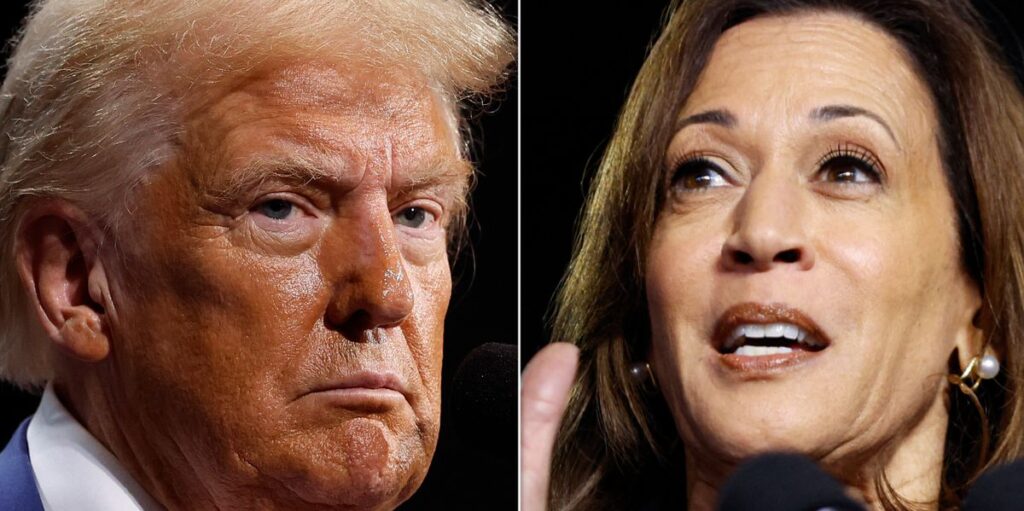On Thursday, Vice President Kamala Harris addressed Donald Trump’s recent bizarre claim of being “the father of IVF” during a rally in Wisconsin focused on reproductive rights. Harris criticized Trump for selecting Supreme Court justices who played a significant role in eliminating the federal right to abortion and expressed her concern regarding the Republican Party’s broader attacks on various forms of reproductive health care, including in vitro fertilization (IVF). She emphasized that Trump has not owned up to the damage he has caused to women’s health care in America, highlighting the disparity between his self-proclaimed title and the reality of the legal and political landscape regarding reproductive rights.
Harris showcased a clip from a town hall meeting where Trump made his puzzling assertion about IVF. At that Georgia event, he expressed his support for the procedure and claimed the Republican Party was more favorable towards IVF than Democrats. Such comments, paired with his previous advocacy of overturning Roe v. Wade — which provided a constitutional safeguard for abortion rights — led Harris to assert that Trump’s statements lack understanding and gravitas when it comes to women’s health issues. She conveyed disbelief at Trump’s self-identification as a pivotal figure in the IVF debate, equating it to a disconnect from the complexities surrounding reproductive health care.
Trump’s prior actions, notably his appointment of three conservative justices to the Supreme Court, have had significant repercussions for abortion access, prompting numerous states to implement restrictive abortion laws. Such legislative measures have raised alarms among reproductive rights advocates about the potential implications for other fertility treatments, including IVF. This week, the implications of changing abortion laws became increasingly visible when the Alabama Supreme Court controversially designated frozen embryos as “children.” This ruling forced fertility clinics in the state to reevaluate their IVF services and ultimately led to state legislative efforts to safeguard access to IVF treatments.
The political discourse surrounding reproductive rights has seen heightened tensions since the dismantling of federal abortion protections. With various states embracing more conservative, restrictive measures, advocates are concerned that these developments will not only affect abortion services but could also encroach upon fertility services such as IVF. This interconnectedness highlights the cautious atmosphere for individuals seeking reproductive health options in states with stringent laws and reflects a growing apprehension about the future of family planning and reproductive freedoms in America.
In response to Harris’s remarks, a spokesperson for Trump downplayed the former president’s “father of IVF” comment, framing it as a lighthearted statement made while answering questions about fertility issues. Karoline Leavitt dismissed concerns by suggesting that Trump was merely joking and underscored that his administration purportedly supports IVF. However, critics argue that while Trump’s statements may be intended humorously, they belied a deeper, unsettling reality about the administration’s impact on reproductive rights.
As the presidential campaign progresses, discussions surrounding reproductive rights and health care access remain at the forefront of political engagement. Harris’s rally in Wisconsin served not only as a critique of Trump’s claims but also as a rallying cry for advocating reproductive health protections. The discourse indicates a pivotal moment in American politics, illuminating the contentious landscape of rights that affect women directly. Such assertions by candidates potentially shape the electorate’s perspective as they navigate the complex realities of reproductive autonomy in light of evolving legal precedents and partisan divides.

